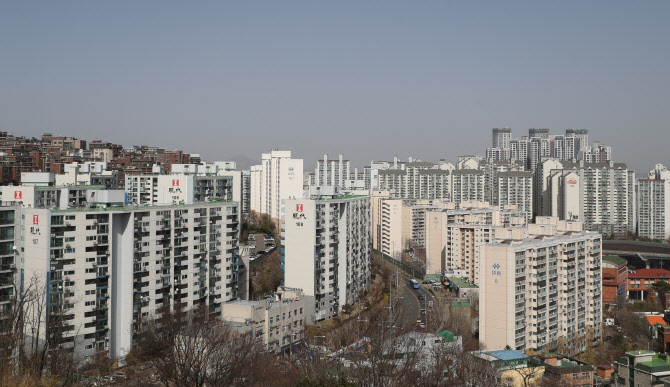|
[세종=이데일리 원다연 기자] This year, as the public price of apartments and apartments soared nearly 20%, the subject of comprehensive real estate tax was greatly expanded. In addition, this year’s tax rate has risen significantly, increasing the burden of ownership tax on homeowners. There is widespread dissatisfaction that house prices are raised by the government and taxes are paid by the people. In particular, there is a possibility that the tax bomb will increase as further tax increases are being discussed centering on passports.
From soaring publicly announced prices to an increase in the ending tax rate… The increase in ownership tax is estimated at 1.9 trillion
According to the Ministry of Land, Infrastructure and Transport’s ‘2021 public housing price plan’, the national average public housing price this year rose 19.08% compared to the previous year. It recorded the largest increase in the 14 years since 2007 according to the government’s policy to realize the official price. In the case of Sejong City, where the house price soared, the official price of apartment houses soared by 70.68%.
Housing that exceeds the official price of 900 million won, which is subject to the tax on the basis of one household per household, increased 69.58% (215,259 households) from last year to 52,620 households nationwide. Due to the soaring public price, the number of people who are one-homed and still have to pay the tax levies has increased significantly.
Due to the revision of the taxation law in August of last year, the taxation rate will increase significantly from this year. For those with two or less houses, the tax rate for each target will rise from 0.5-2.7% to 0.6-3.0%, and for those with three or more houses, from 0.6-3.2% to 1.2-6.0%.
According to the “Analyzing the Tax Effect of the 2020 Comprehensive Real Estate Tax Act,” which was commissioned by the National Assembly’s Planning and Finance Committee member Chu Gyeong-ho to the National Assembly Budget Office, the amount of ownership tax that will be removed this year from the increase in the publicly announced land price and jong tax amounted to 1.58 trillion won. The increase in property tax due to the public price increase is 155.5 billion won, and the increase in the jong tax due to the public price increase and the amendment of the taxation tax law is 1.82 trillion won. Last year, the final tax was 3.6 trillion won.
However, this is an estimated amount assuming that 10% of multi-homeowners and corporations sell their homes this year and are excluded from taxation and there is no change in home prices for 10 years, so it may increase further if the sales volume is small or the house price rises.
The withdrawal of benefits for rental business owners was also discussed… “One household and one house need supplementary measures”
There was also a spark of additional real estate taxation. The government has previously announced that it will review measures to strengthen the management of taxation for registered rental housing businesses.
Currently, rental business owners are excluded from the summation of tax in the case where the official housing price at the time of registration is less than 600 million won in the metropolitan area and 300 million won in rural areas. In this case, it was pointed out that the registered rental business continued to receive unfairly benefits because the public price would not be excluded from the summation exclusion even if the public price exceeded the standard. Minister of Land, Infrastructure and Transport Byun Chang-heum said in the National Assembly’s business report last month, “I will examine the data considering system improvement.”
Earlier this year, Governor Lee Jae-myeong of Gyeonggi Province also insisted on amendment of the taxation tax law, saying, “There is no reason to give preferential tax treatment for rental housing that is owned by a housing leasing business operator, compared to a housing for real residence.”
As the tax burden on real estate ownership increases, such as during transfer tax, punitive taxation measures for those who choose to donate instead of transfer are also discussed.
Hoo-deok Yoon, a member of the Democratic Party, said, “Multi-homeowners donate to their spouses or direct relatives who are homeless to avoid the burden of taxation. They argued that a premium tax system should be introduced. Last year, the number of home donations was 152,000, up 37.5% from a year ago. From June, as the intensive transfer tax for multi-homed people takes effect, the number of gifts can increase further.
Ahn Chang-nam, professor of the Department of Taxation at Gangnam University, said, “The government is using real estate taxes to prevent speculation. It is necessary to supplement it so that it is less than 10% of the previous year’s inflation rate.”

